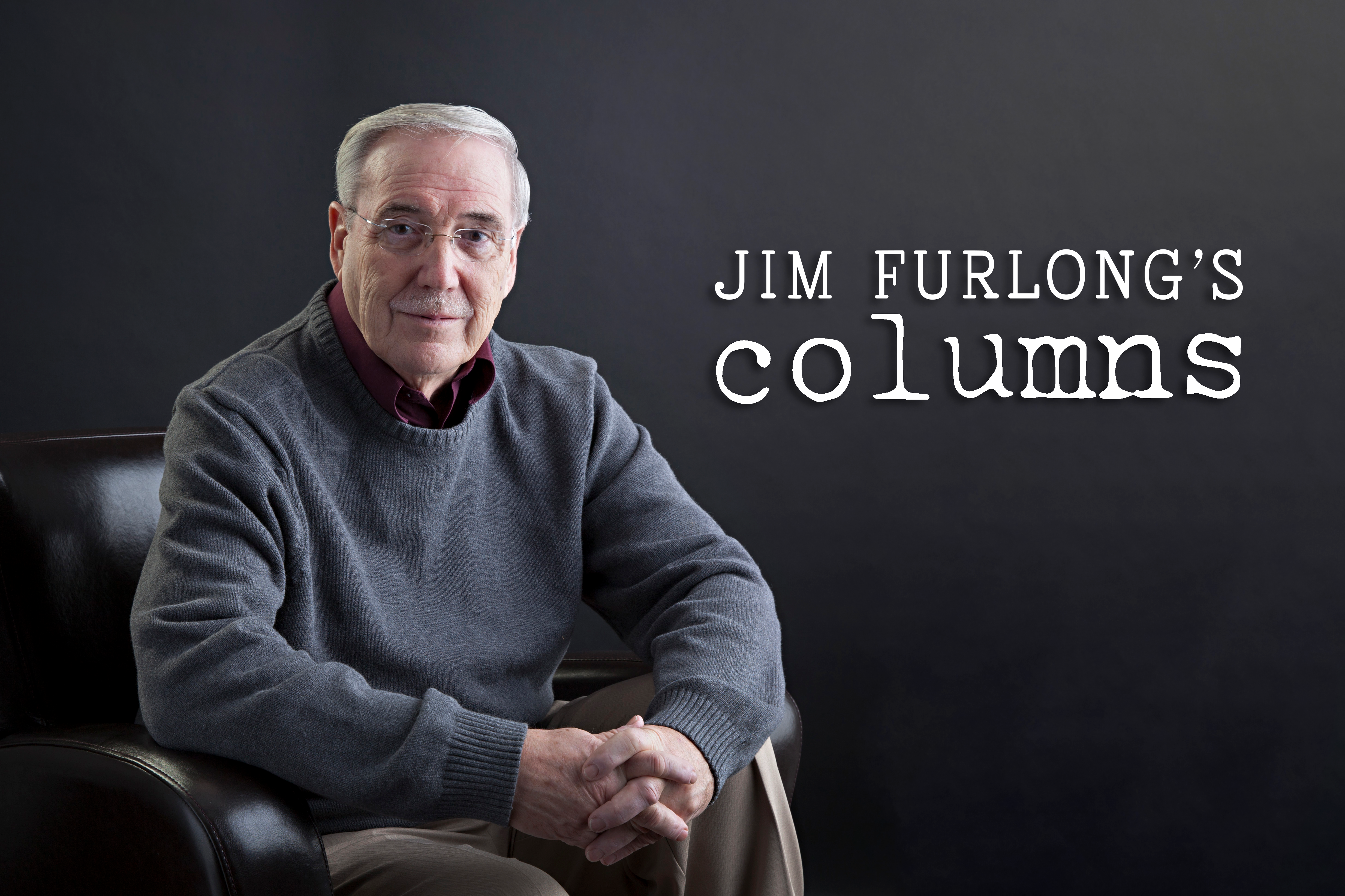It is funny how emotion sneaks up on you when you least expect it. I think of myself as hard as nails in matters of news and information because I have spent so many years in that world and
I understand the necessity of keeping emotions under control so a story can be told with accuracy. That doesn’t mean you don’t care about things only that you remain under control. A journalism professor many years ago said, “Remember Jim; nobody cares what YOU think about anything!”
All of that may be true but it was the repatriation this month of the body of the Unknown Soldier from the Great War to Newfoundland’s shores that “gave me pause” and touched something deep within me. It took a while to figure out why that was so. I have been to Beaumont Hamel three times. In fact, I have been several times to all the battlefields of the Royal Newfoundland Regiment in France and in Belgium on what is known as The Trail of the Caribou. I have walked the fields and been in the trenches and knelt in the cemeteries. I know the story well.
They have been endlessly fascinating journeys. On one of those visits on the 75th anniversary of July 1, 1916 I was lucky enough to have met with each of the last two survivors of that grim day at Beaumont Hamel. Abe Mullet and Walter Tobin, then in their 90s, told me in separate interviews that Beaumont Habel was a terrible mistake and an endeavor that every soldier going over the top knew would fail. Abe Mullet even offered the opinion that the military leadership was just trying to make a reputation. Abe called that leadership ‘The Big Fella’. I assumed he was talking about Field Marshall Douglas Haig. I learned much over the years about July 1st and the Somme and First World War in general. I learned what a waste it all was, but I knew that anyway.
The First World War story I knew, however, as a logistical story. It was a story of numbers into battle, numbers of dead, numbers of wounded, numbers of survivors. There were stories of endurance, stories of loss and stories of bravery. That was all part of it. I have seen the now quiet graveyards of Newfoundland soldiers and British soldiers and French soldiers and in northern France a graveyard for German soldiers. It all made for complicated stories about the events of war. It was a terrible war of wastage that shaped Newfoundland in ways we can only talk of in terms of speculation. The great question for Newfoundland from the Somme and from the entire war is what might have been if we had not lost a generation of our best and bravest young men.
All of that has filled me with curiosity over the years. I am a student of history but not an historian. I am a teller of stories. That changed a couple of weeks ago when the body of a fallen Newfoundland soldier was brought home to be buried at the War Memorial. What struck me was that there was a casket and hearse. It was all so very real. It wasn’t a museum or a fact sheet or a tribute. It was man who was coming home more than a century after going overseas to fight for his country. Newfoundland was a country at the time. It would be many years before we would become a part of Canada.
I understood hearse and casket. My mother had a hearse. My Father had a hearse. My brother had a hearse. Behind the hearse as it made it way from the airport through St. John’s streets was Premier Andrew Furey. His place was that of chief mourner. That was appropriate since nobody knew or will know the name of the young Newfoundland man killed so long ago so the Premier mourns on behalf of all families. Fair enough.
The questions arise. Like so many others did this young soldier enlisted thinking, like many of his comrades, that it would all be over by Christmas. Was he single? Was he married? Where was he from? Was he a St. John’s corner boy or was he from some tiny fishing community? Was he a boy of the Methodist Guards or the Catholic Cadet Corps or any of the other paramilitary religious organizations that preached the gospel of “King and country”? Why did he enlist? Most importantly, who did he leave behind to mourn without a body to mourn over? A grim lyric comes to us from an old Irish song.
“Well, I hope you died quick and I hope you died clean.”
That is a grim thought, but it too is part of war. We don’t know and will never know the name of our Unknown Soldier, but we will honor him. His place will be special. Like many of us, I will think of him. I thought of him when I saw people quietly applauding as he was brought into St. John’s from the airport. No words, no music. There was just a respectable applause for someone who died a very long time ago in place that was far away. It was applause for someone finally coming home.
You can contact Jim Furlong at jfurlong@ntv.ca
